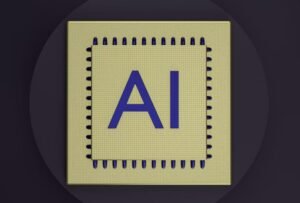Apps Definition
An app, short for application, is a software program that runs on a mobile device or computer, designed to perform specific tasks or provide specific services to users.
Key Takeaways:
- An app is a software program that runs on a mobile device or computer.
- Apps are designed to perform specific tasks or provide specific services to users.
- They are available on various platforms such as iOS, Android, and Windows.
Apps have become an integral part of our daily lives, allowing us to access a wide range of services, such as social media, productivity tools, entertainment, and more, right at our fingertips. From ordering food to managing finances, there’s an app for almost everything.
**Apps are typically installed and run on smartphones, tablets, or computers, providing users with a dedicated interface to access their features and functionalities.** Some apps come pre-installed on devices, while others can be downloaded from official app stores or downloaded directly from developer websites.
*Mobile apps are specifically designed for use on small, portable devices, while desktop apps are built for larger screens and offer more extensive functionality.*
The Evolution of Apps
The history of apps can be traced back to the early 2000s when smartphones started gaining popularity. Initially, apps were simple and primarily focused on basic functionalities like email, calendars, and contacts. However, with advancements in technology and the rise of app development, the scope and capabilities of apps expanded.
**Interesting fact:** The first smartphone app store was launched by Apple in 2008, revolutionizing the way we download and use apps on mobile devices.
Today, app development has become an industry of its own, with millions of apps available across various platforms. From social networking apps like Facebook and Instagram to gaming apps like Pokemon Go, the app ecosystem is vast and diverse.
Types of Apps
There are several types of apps available, catering to different user needs and preferences. Some of the common categories include:
- Social Media Apps: Connect and interact with others through platforms like Facebook, Twitter, and Snapchat.
- Utility Apps: Provide tools and functionalities for tasks such as weather updates, language translation, and file management.
- Entertainment Apps: Offer multimedia content, such as streaming services for movies, music, and videos.
- Productivity Apps: Aid in organizing tasks, managing calendars, and enhancing work efficiency.
App Platforms
Apps are built using various programming languages and frameworks, depending on the platform they are intended for. The three major platforms for app development are:
| Platform | Operating System |
|---|---|
| iOS | Apple’s proprietary operating system used on iPhones and iPads. |
| Android | An open-source operating system used on a wide range of devices, including smartphones and tablets from various manufacturers. |
| Windows | Microsoft’s operating system, mainly used on desktop and laptop computers. |
*Each platform has its own unique set of development tools and guidelines, requiring developers to adapt their apps accordingly.*
The Future of Apps
As technology continues to evolve, so will the world of apps. With the introduction of emerging technologies like augmented reality (AR) and artificial intelligence (AI), apps are expected to become even more advanced and immersive.
1. AR integration is expected to enhance user experiences by overlaying digital information onto the real world.
2. AI-powered apps may offer personalized recommendations and automated tasks, simplifying daily life even further.
3. With the rise of 5G technology, apps can leverage faster network speeds to deliver richer content and real-time interactions.
The possibilities are endless, and the app market will undoubtedly continue to innovate and surprise us in the years to come.

Common Misconceptions
Apps can only be used on smartphones.
- Apps can also be used on tablets, smartwatches, and even some smart TVs.
- Desktop and laptop computers can also run applications.
- Web applications, accessed through browsers, are also considered apps.
Apps are only used to play games and socialize.
- Apps can be used for a wide variety of purposes, such as productivity, education, finance, and health.
- Many businesses have their own apps to offer services and improve customer experience.
- Communication apps, such as email, messaging, and video calling, are essential for professional and personal use.
Apps are all created by large companies.
- There are numerous independent developers and small companies that create apps.
- App development tools and platforms have made it easier for individuals to create their own apps.
- The app marketplaces provide opportunities for independent developers to showcase and distribute their creations.
Apps are always secure and don’t require caution.
- Not all apps go through rigorous security testing, and some may have vulnerabilities.
- Users should be cautious while granting app permissions and only download from trusted sources.
- Regularly updating apps is crucial to ensuring security, as updates often contain patches for known vulnerabilities.
Apps are free to develop and maintain.
- Developing and maintaining apps can be a time-consuming and costly endeavor.
- App development requires expert skills, software licenses, and possibly hiring professionals.
- In-app purchases, subscriptions, and advertisements are common revenue models for sustaining apps.

Introduction
Technology has revolutionized the way we interact with the world, and mobile applications, commonly known as apps, have played a vital role in this transformation. Apps have become an integral part of our daily lives, serving various purposes from entertainment to productivity. In this article, we will explore ten fascinating aspects of app development and usage through engaging tables.
Rise of Mobile Apps
In recent years, there has been a remarkable increase in the number of mobile apps available across different platforms. Let’s take a look at the growth of app stores and the number of apps they host:
| App Store | Number of Apps |
| —————- | ————– |
| Apple App Store | 2.2 million |
| Google Play Store| 3 million |
| Microsoft Store | 669,000 |
App Revenue
Apps not only simplify our lives but also generate substantial revenue for developers. Here, we examine the revenue generated by various app categories in 2020:
| App Category | Revenue (in billions USD) |
| ————— | ———————— |
| Gaming | 83 |
| Entertainment | 39 |
| Social Networking | 37 |
| Music Streaming | 24 |
| Productivity | 22 |
| Health & Fitness| 21 |
The Top Smartphone Manufacturers
Mobile apps are closely tied to the smartphone market. Let’s delve into the market share of the top smartphone manufacturers as of 2021:
| Manufacturer | Market Share |
| ————– | ———— |
| Samsung | 22% |
| Apple | 16% |
| Huawei | 8% |
| Xiaomi | 7% |
| Oppo | 6% |
| Others | 41% |
App Downloads by Region
Mobile apps have different levels of popularity across different regions. The following table displays the number of app downloads from major regions in 2020:
| Region | App Downloads (in billions) |
| ———— | ————————– |
| Asia-Pacific | 107 |
| North America| 31 |
| Europe | 30 |
| Latin America| 16 |
| Middle East & Africa | 10 |
| Others | 6 |
Most Popular Social Media Apps
Social media apps dominate the app landscape, with immense popularity among users. This table lists the top social media apps based on active users:
| Social Media App | Active Users (in millions) |
| —————– | ————————- |
| Facebook | 2,850 |
| YouTube | 2,291 |
| WhatsApp | 2,000 |
| Instagram | 1,221 |
| WeChat | 1,206 |
Business Apps for Productivity
Business apps enhance productivity and streamline workflows. The table showcases various types of business apps and their specific functions:
| Business App | Functionality |
| ————— | ————————————————– |
| Slack | Team collaboration and communication |
| Trello | Project management and task organization |
| Zoom | Video conferencing and virtual meetings |
| Evernote | Note-taking and organizing |
| Asana | Task management and team coordination |
| Salesforce | Customer relationship management and sales tracking|
Healthcare Apps and Their Benefits
The healthcare industry has also embraced apps to enhance patient care and improve health outcomes. The following table highlights different types of healthcare apps and their benefits:
| Healthcare App | Benefits |
| ———————— | —————————————————- |
| MyFitnessPal | Track nutrition and exercise for weight management |
| Calm | Meditation, sleep, and relaxation |
| Epocrates | Drug information and clinical support |
| Clue | Menstrual cycle tracking and reproductive health |
| First Aid by Red Cross | Immediate medical assistance and emergency guidance |
App Personalization and Localization
Localization and personalization are essential aspects of app development. Here are some ways apps adapt to diverse user preferences:
| Personalization Technique | Example |
| ————————– | ——————————————————————— |
| Language Localization | Providing app content in multiple languages |
| AI-driven Recommendations | Offering personalized content, product recommendations, or playlists |
| Customizable Interfaces | Allowing users to customize colors, themes, and layout of an app |
| Contextualized Push Notifications | Sending notifications based on user’s behavior or location |
App Security Measures
As apps handle sensitive user data, security measures are of utmost importance. Here, we outline various security features employed by app developers:
| Security Measure | Description |
| ——————————- | —————————————————————————– |
| Encryption | Securing data transmission with encryption algorithms |
| Two-Factor Authentication | Adding an additional layer of security through a second verification method |
| App Permissions | Requesting user consent to access specific device features and information |
| Penetration Testing | Conducting simulated attacks to identify and address vulnerabilities |
| Regular Security Updates | Providing timely updates to patch security weaknesses and bugs |
Conclusion
Mobile apps have become an integral part of our lives, offering a wide range of functionalities and benefits. From social media platforms to productivity tools and healthcare resources, the evolution of apps continues to enhance our digital experiences. As the app market expands and new technologies emerge, developers and users alike will shape the future of mobile applications.
Frequently Asked Questions
What are apps?
An app, short for application, is a software program that runs on various digital devices, such as smartphones, tablets, and computers. They are designed to perform specific functions, provide services, or entertain users.
Where can I download apps?
Apps can be downloaded from various sources, including official app stores like Google Play Store for Android devices and the App Store for iOS devices. Additionally, app developers may offer direct downloads from their websites.
What types of apps are there?
There are numerous types of apps available, including social media apps, productivity apps (e.g., email, calendar), entertainment apps (e.g., games, streaming services), educational apps, utility apps (e.g., weather, calculator), and more.
Can apps be free?
Yes, many apps are available for free to download and use. However, some apps may include in-app purchases or offer premium versions with additional features for a fee.
How do apps work?
Apps are developed using programming languages and frameworks specific to the platform they are intended for. They utilize the device’s operating system and hardware capabilities to perform their tasks. They can access various resources, such as internet connectivity, GPS, camera, and microphone, to enhance functionality.
Are apps available for all devices?
There are apps available for a wide range of devices, including smartphones, tablets, smart TVs, smartwatches, and even some home appliances. However, the availability of specific apps may vary depending on the operating system and device compatibility.
Can apps be deleted from a device?
Yes, apps can be easily removed from a device. On most devices, you can long-press on the app icon, select the delete option, or uninstall it through the device’s settings. Once removed, all associated data and files are typically erased as well.
Can apps harm my device?
Most legitimate apps available on official app stores are safe to use. However, it is crucial to download apps from trusted sources to minimize the risk of malware or other security threats. Always read reviews, check app permissions, and be cautious when downloading apps from unfamiliar sources.
Can apps access my personal information?
Apps might require permissions to access certain features or data on your device. It is essential to review the permissions requested by an app before downloading or installing it. While reputable apps generally follow privacy guidelines, it is advisable to be mindful of the permissions granted and be cautious with sensitive information.
Can I create my own app?
Yes, it is possible to create your own app. However, developing an app typically requires knowledge of programming and software development. There are various resources, tutorials, and tools available online that can assist you in creating your app.





